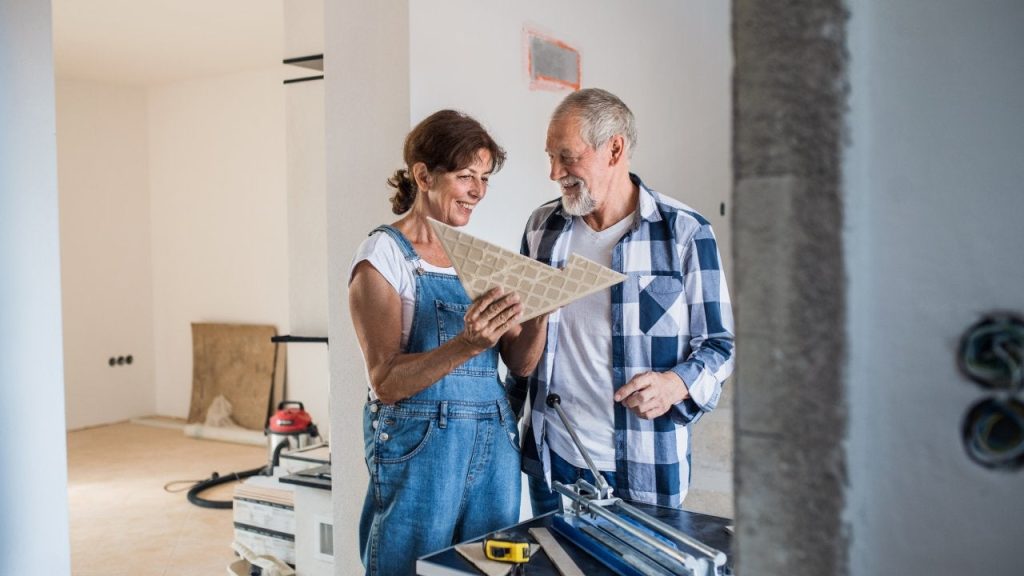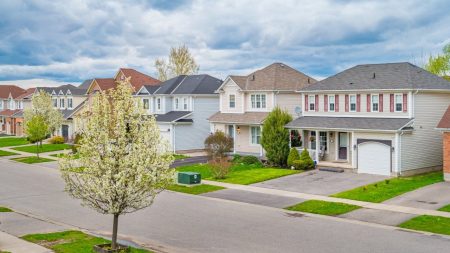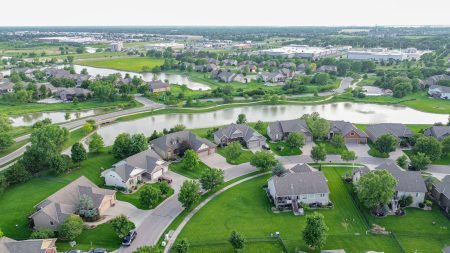Key takeaways
- Different types of grants are available at the federal, state, and local levels, such as the Weatherization Assistance Program and Eldercare.
- Eligibility requirements vary — you may need to meet income requirements or live in a specific area.
- Some organizations, like the USDA and LIHEAP, offer specific grants for safety and accessibility improvements.
Navigating home renovations—especially with inflated costs—as you age in place can be overwhelming and difficult. Thankfully, multiple resources are available to assist older individuals looking to make their homes more comfortable or conducive to their needs.
Are there home improvement grants for senior citizens?
There are a plethora of grants and discounts available to older adults looking to remodel or improve their homes. These grants are offered by local, state and federal governments, nonprofit organizations, charities and churches. Some grants are available based solely on age, while others may be based on location, need or income.
Types of home improvement grants
While the eligibility and details of each award will vary based on the program, there are tiers of grants available federally and on a state and local level. To maximize your potential savings, make sure you’re aware of every opportunity and meet the necessary requirements before applying.
Federal government grants
Weatherization Assistance Program
The Weatherization Assistance Program (WAP) serves low-income individuals and families who live below the poverty line. The program is funded by the U.S. Department of Energy and was recently expanded to include individuals over the age of 60.
WAP improves energy efficiency in the home, which helps lower energy costs and can make your home a more comfortable place to live when the elements hit. Since it began in 1976, the program has helped more than 7 million people and has saved the average household $372 or more annually through energy-efficient upgrades.
Eldercare
Eldercare is a public service program offered by the U.S. Administration on Aging (AoA) since 1991. It connects older adults and their families to assistance through state and local support programs and resources. Among others, Eldercare offers services related to housing, elder rights, insurance, benefits, health support and transportation services.
Use the Eldercare Locator to find agencies near you.
United States Department of Agriculture (USDA) loans
The USDA Single Family Housing Repair Loans and Grants program assists homeowners aged 62 and older. The program exists to help promote “safe, decent housing for older adults in rural areas.”
The grants can be used to remove safety hazards and health concerns within the home and are geared toward “very-low-income homeowners.” The grants can be applied to accessibility-related modifications like a walk-in bathtub, installing grab bars in showers and changes that make a home more accessible for those with disabilities.
Low-Income Home Energy Assistance Program (LIHEAP)
Much like the Weatherization program, LIHEAP provides energy and utility assistance for older adults. The federal grant helps eligible, lower-income households meet cooling and heating needs.
Keep in mind that LIHEAP is designed differently from state to state, but you can check with your local LIHEAP office to see what’s offered in your area.
State grants
The U.S. Department of Housing and Urban Development (HUD) offers assistance programs and community development grants for homeowners in each state. Each grant, including award amount, details and requirements, will vary per state.
The HUD also offers “funding opportunities for competitive applicants and existing recipients.” To apply for any of HUD’s grants programs, you’ll need to have a federal DUNS (Data Universal Number System).
For more information, contact your state’s Division of Aging and Adult Services or the state’s Home Improvement Program. Some states, like South Carolina, have a Community Development Division that can help applicants find — and apply for — funding and grants.
Local grants
Nonprofit organizations, corporate companies and religious institutions may offer housing assistance to older Americans. Keep in mind that local grants may be more difficult to qualify for when compared to government or state-based grants. This is due to the average number of applications compared to the company’s available funds.
To maximize your chances of earning more funding, contact your local government. There may be a community-based grant or award available to residents of a specific town, village or county.
Organizations that offer renovation aid for seniors
Multiple national charities and organizations specialize in helping specific populations complete home improvement projects and renovations.
Here are a few to check out before taking on debt to make any home modifications.
- USDA Housing.
- Habitat for Humanity.
- Rebuilding Together.
- The Coalition for Home Repair.
- Home Depot Foundation.
Other home improvement financing options
If you’re left with expenses after tallying up your grants, it doesn’t mean you have to put your project on hold. There are financing options at your disposal, but they’re best only once you’ve maximized your grants.
The best method for you depends on factors like how much you’re financing, what your credit score is and how much equity you have in your home. Explore every option below to choose the best for your project.
| Financing type | Who it’s best for | Project size | Basic requirements |
| Home improvement loan | Individuals with a good credit score and a solid financial history | Small, medium or large |
|
| Small dollar personal loan | Lower-income adults who need a small amount of financing | Small (up to $2,500) |
|
| 0 percent credit card | Borrowers who can repay the balance by the end of the 0% period | Small, medium |
|
| Home equity loan | Individuals with equity in their home who need to finance a larger project with a fixed cost | Medium, large |
|
| Home equity line of credit | Homeowners financing a large, ongoing project | Large |
|
The bottom line
Whether you want to make safety accommodations to your home or just make it cozier, research every opportunity and grant available to older adults. If you struggle to land a grant, consider getting a loan for home improvements — just be aware of the drawbacks. Unlike with a grant, you will need to repay the money with interest.
Read the full article here










